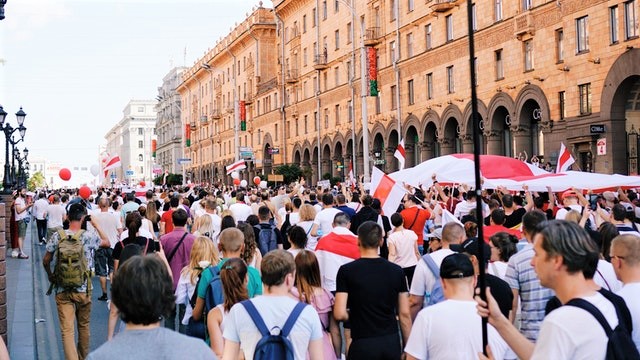
There are a lot of challenges to good governance in developing countries. Before proceeding further, it is important to describe the nature of these challenges and major complexities for the governance to deliver. Good governance is such a process in which its functionality and management of the public resource are kept into consideration. Governance is actually a mechanism of execution of the resources.
There are numerous challenges to governance in developing countries. The stability of political institutions is essential in order to ensure social development. But unfortunately, intervention or breach of power delimits the ongoing process of governance.
The Challenge of Transforming Politics
Democracy is such a process of social interaction in which groups elect their own representatives. They represent their interests and try to exercise collective action on behalf of those interests in order to get common objectives. This phenomenon arises from a variety of different processes of social interaction. It also includes but is not limited to: the evolution of market-based institutions that are willing to cede power to elected representatives, relatively free and competitive political processes, the rising political awareness of citizens, and the popularity of political leaders.
Merely electing representatives will not solve the problem of good governance. Governments lack the power to provide adequate public goods, a key pillar of democratic societies.
Increasing the power of the Executive Branch
Since 2005, a new phenomenon has been observed. Developing countries are inclined to further empower their executive branch instead of its legislative or judicial branch. The executive will no longer hold meetings with the legislative or judicial branch.
This is an innovative development and a sign of the increasing power of governments and a threat to good governance. Under the Executive’s power, the executive controls the legislative and the judicial branch and utilizes the laws of the country to achieve its goals.
Closing Civic Space
Dissatisfaction with existing governments is widespread. Generally, much of this dissatisfaction stems from the failure of governments to meet the basic needs of citizens in areas such as food, electricity, employment, housing, security, transportation, and other elements of daily life. In some cases, citizens express dissatisfaction for reasons that are in some sense reasonable and legitimate. For example government responses to disasters, or corruption, mismanagement, or authoritarianism. In other cases, such as when widespread or systematic human rights abuses occur, the motives are more suspect. Sometimes, this dissatisfaction is simply a way for citizens to vent their frustrations. In others, it is a way to undermine the legitimacy of the government.
Violations of Human Rights
To reform a government there must be enough political will to challenge and subvert the status quo. But in developing countries, this often comes at a price, and dissenting voices often face retaliation. Political leaders in developing countries are often populists and strongmen who “play the role of messiah” or “good cop to their authoritarian counterparts” (Nicholson & Maguire).
For example, Zimbabwe’s president, Robert Mugabe, “constantly compares himself to Jesus Christ and makes no bones about courting followers through violence and brutality,” said a diplomat in Harare.
Lack of Political Competition
In some countries, a weak political structure is one of the major hurdles against development. This fragile political structure causes a problem for political competition. The structure of so-called political parties revolves around certain people, family or tribes. The absence of democracy in the political parties paves the way for weak governance. Because the public representatives come from these parties, which are not harmonized with the political structure. As a result, they become irrelevant in the political system. The masses start to demonstrate against their governance and new chaos erupts resulting in the instability of the regime.
you can say that there is poor political competition in these countries. The United States has less than 2 percent of its population in government. Almost 75 percent of its citizens are in the lowest income category. Nearly 30 percent reported that they had an acquaintance, worked for, or ran for local office. Moreover, these acquaintances, work for, or candidates were generally low in political or professional skills. Both factors result in local political parties being overly dominated by affluent, educated, and well-connected members of the political elite.
Low Public Accountability
Low public accountability is a big hurdle to good governance in developing countries. The past decade has witnessed an upsurge of research, campaigning, and activism around corruption in a number of countries. The post-coup regimes in Thailand and Turkey are examples of good governance under stress, as demonstrated by the related trend of increasing public demands for accountability. Both of these trends have translated into more pressure for accountability in political and civil life, which has in turn challenged government capacity and intensified fights over political survival.
The “Transition from Ethnocracy to Democracy,” a 2014 Brookings report examining this challenge, suggests that developing societies face two primary challenges in making progress towards good governance.
Limited Government Capacity
In recent years, governments in developing countries have been expanding their power, on the pretext of development. We argue that this means transferring the authority of setting the priorities and the standards of development to politicians and bureaucrats instead of the government.
Only the government can decide on policy priorities, allocate scarce financial resources, negotiate trade deals, and sign international treaties. Although politicians and bureaucrats have resources at their disposal. But the value of their efforts is that they reflect the views and preferences of the people.
When citizens lose trust in their government, they look for alternatives. The alternatives are non-governmental actors, civil society organizations, private companies, and international organizations.
Conclusion
Although low-performing countries have a better understanding of the challenges to good governance in developing countries. But again political will and coordination are important to improve the quality of public institutions, particularly the judiciary. In addition, solutions are complex, require dialogue between diverse stakeholders, and, to some extent, require the creation of new public institutions.
Nevertheless, there is a growing consensus among countries, international organizations, and regional and sub-regional organizations that improving governance is crucial for development and enhancing people’s daily lives. Governments, development institutions, and international organizations need to take urgent steps to develop credible strategies and concrete plans to enhance the quality of governance.




Pingback: The Structure of Social Hierarchy in Developing Countries - Siasi Yateem